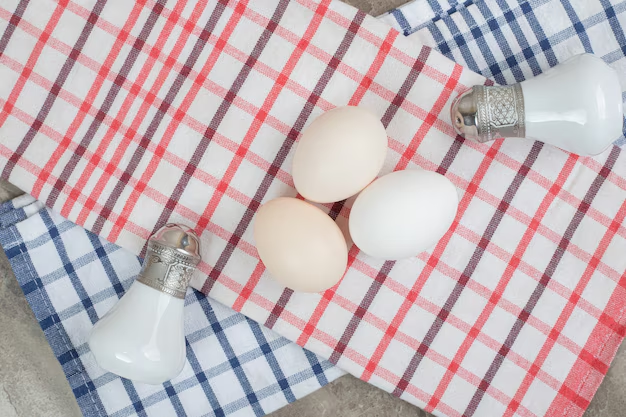How Long Can You Keep Hard-Boiled Eggs in the Fridge?
Ever found yourself with a surplus of hard-boiled eggs after Easter, a hearty meal prep session, or just a productive day in the kitchen? The convenience and nutritional benefits of hard-boiled eggs are undeniable, but questions about their shelf life often linger. Understanding how long hard-boiled eggs last in the refrigerator isn't just about avoiding waste—it's also a matter of food safety.
The Shelf Life of a Hard-Boiled Egg
How Long Do They Really Last?
Hard-boiled eggs, unlike fresh eggs, have a shorter shelf life due to the cooking process, which removes the protective cuticle sealing the eggshells. So, how long can you safely keep them? In general, hard-boiled eggs last about one week in the refrigerator. It's advisable to mark the boil date on the eggs to prevent any guessing games.
Factors Affecting Shelf Life
- Storage Conditions: Proper storage significantly affects shelf life. Hard-boiled eggs should always be stored in the refrigerator at or below 40°F (4°C).
- Peeling Method: Whether or not the egg is peeled impacts its longevity. Unpeeled eggs can last up to a week, whereas peeled eggs should be consumed within 2 to 3 days.
Optimal Storage Tips
Proper Container Use
To extend the fresh taste of your hard-boiled eggs:
- Store unpeeled hard-boiled eggs in a carton or covered container to reduce moisture loss.
- For peeled eggs, ensure they are covered in damp paper towels within an airtight container to maintain freshness.
Avoiding Odor Transfer
Eggs can absorb odors from the refrigerator. Keep them away from strong-smelling foods or use a fragrance-absorbing material like baking soda in your fridge.
Consistent Temperature
Fluctuating temperatures can reduce the shelf life of your eggs. Ensure your refrigerator maintains a constant temperature, ideally monitored with a fridge thermometer.
Signs Your Eggs Have Gone Bad
Determining whether a hard-boiled egg is still good isn’t just about the calendar. Here’s what to look for:
- Smell Test: A sulfur-like or rotten odor indicates spoilage.
- Appearance Changes: A slimy texture on the shell or yolk, or a chalky appearance, suggests the eggs are no longer safe to eat.
- Unusual Taste: Always discard eggs that taste off. This may indicate bacterial growth.
Related Subtopics: Eggs and Food Safety
Hard-Boiled vs. Fresh Eggs
While fresh eggs can last several weeks in the fridge, it's important to consume hard-boiled eggs more promptly. The protective cuticle of raw eggs is removed once boiled, making them more susceptible to bacteria.
Health Benefits of Eggs
Eggs are a powerhouse of nutrition. They are loaded with proteins, vitamins, and essential amino acids. Regular consumption of eggs can support muscle development, improve brain health, and contribute to eye health with nutrients like lutein and zeaxanthin.
Versatile Uses for Hard-Boiled Eggs
From breakfast to dinner, hard-boiled eggs are incredibly versatile:
- Classic Salads: Add them to salads for extra protein.
- Easy On-the-Go Snack: Perfect for a quick snack in their natural packaging.
- Egg Salad Sandwiches: Mix with mayo, mustard, and spices for a classic sandwich filling.
Key Takeaways for Your Fridge
Here's a quick reference guide to managing your hard-boiled eggs:
- 🗓️ Date Marking: Always mark the date of boiling for easy reference.
- ❄️ Storage: Store unpeeled eggs in a carton, peeled eggs in damp paper towels within airtight containers.
- 🧊 Temperature Control: Keep the refrigerator consistent at or below 40°F (4°C).
- 👃 Odor Awareness: Be mindful of strong odors in the fridge, which eggs can absorb.
- 🚫 Discard: Throw out any eggs with a bad odor, unusual texture, or off taste.
Bringing It All Together
Hard-boiled eggs are a staple in many kitchens around the world, and understanding their storage needs can help you waste less and stay safe. With these guidelines, you are well-equipped to make the most out of your hard-boiled egg stash, ensuring each is consumed at its peak freshness.
So, the next time you reach for an egg in your fridge, you'll know exactly what to look for and how to manage your egg inventory effectively. Enjoy your eggs – fresh, nutritious, and worry-free!

